повествовательного предложения и краткого вопроса
Tom
can swim well, can’t he?Если повествовательная часть утвердительна,
то вопрос отрицателен и наоборот.
−,+ He can’t skate, can he?
+,− He can skate, can’t he?
FindSlide.org - это сайт презентаций, докладов, шаблонов в формате PowerPoint.
Email: Нажмите что бы посмотреть
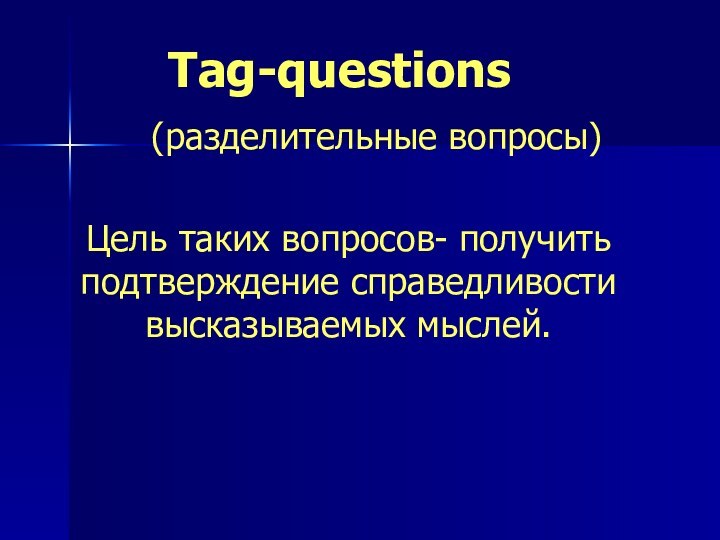
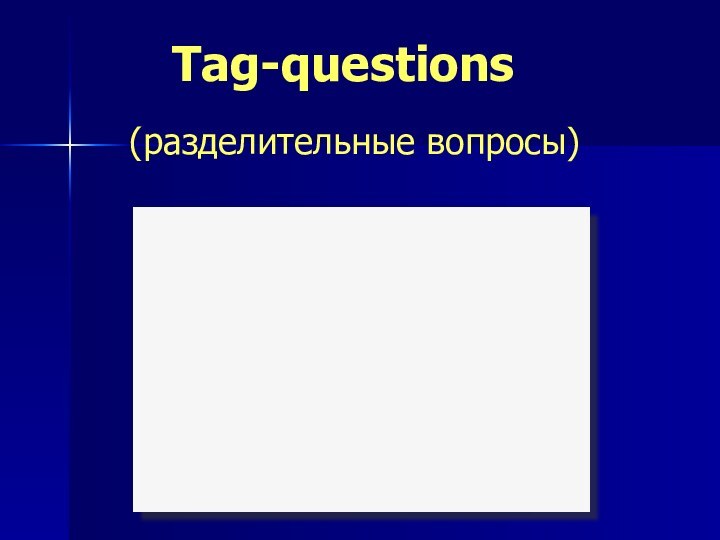

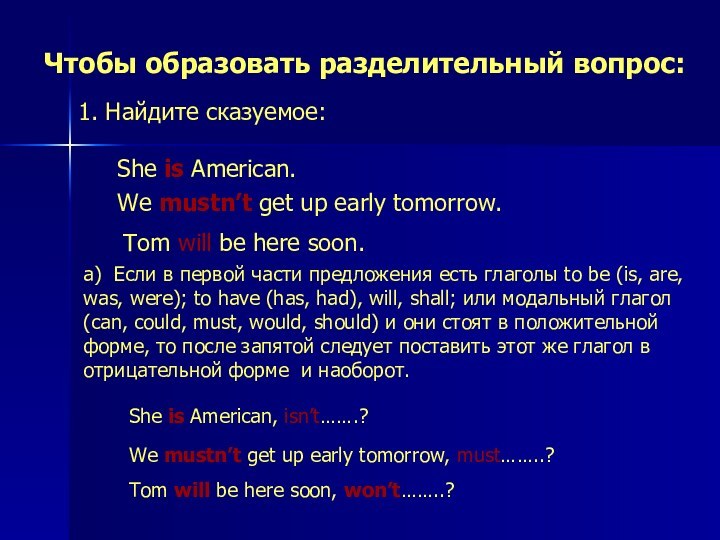
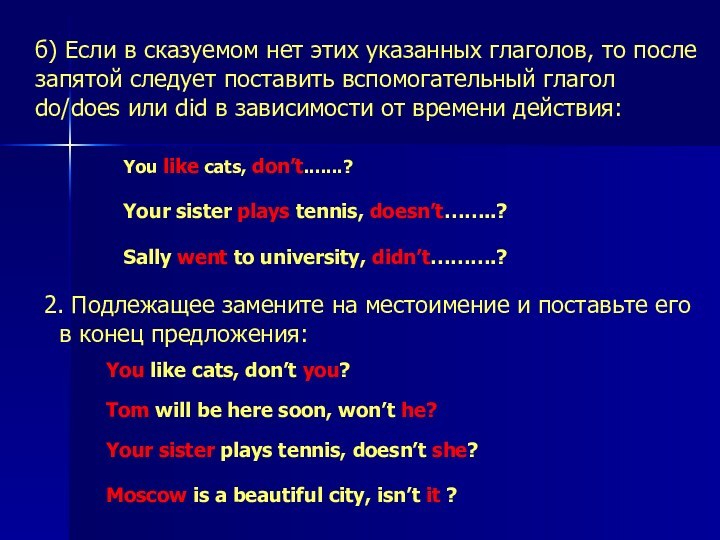
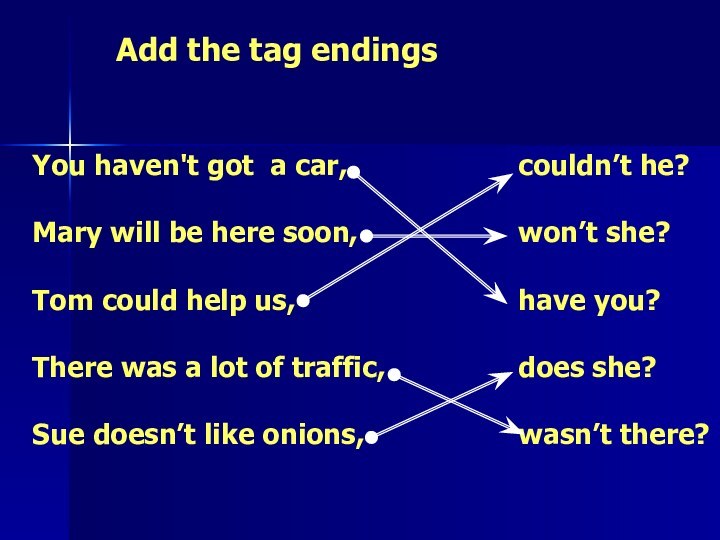

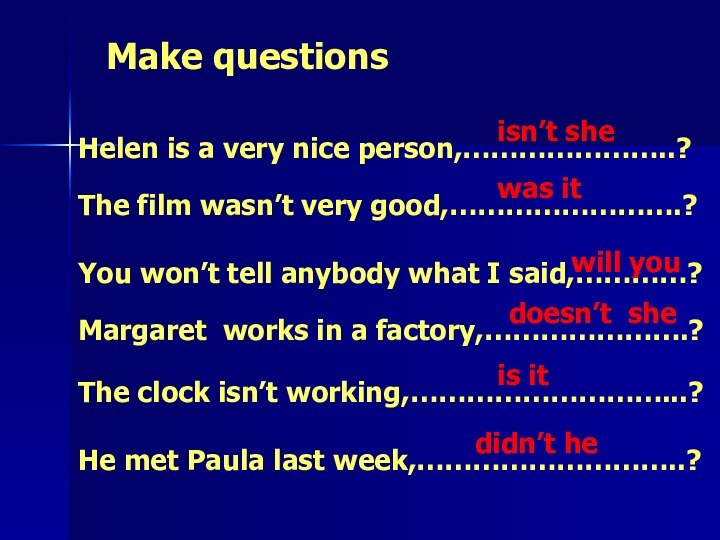
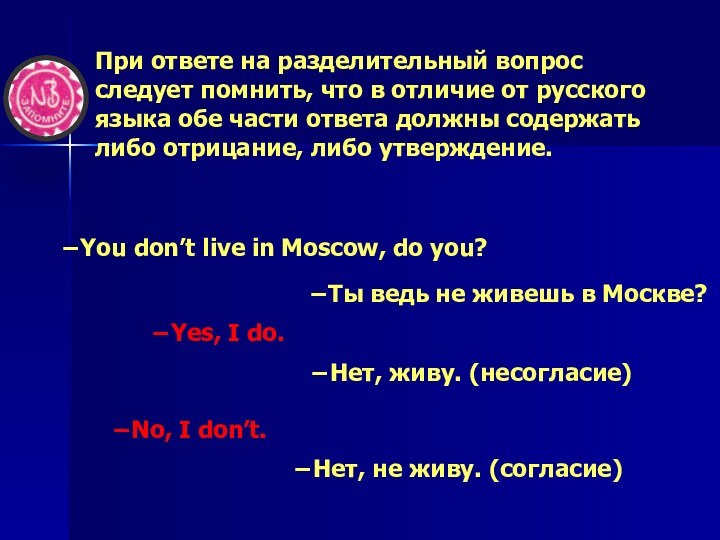
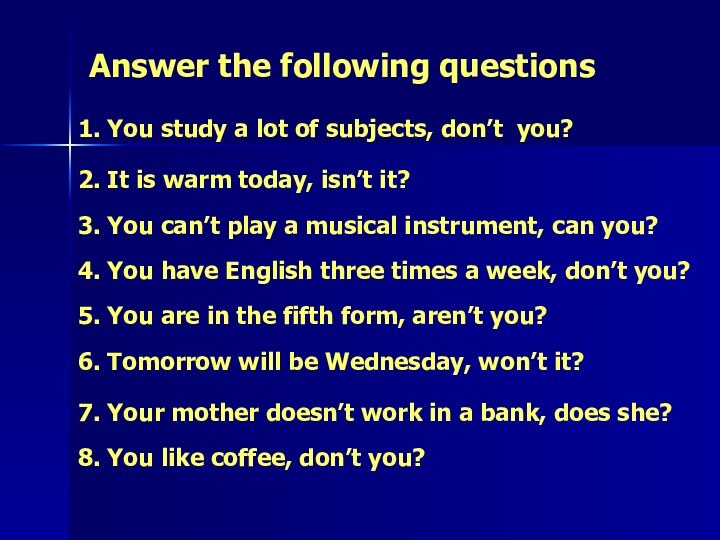
Если повествовательная часть утвердительна,
то вопрос отрицателен и наоборот.
−,+ He can’t skate, can he?
+,− He can skate, can’t he?
a) Если в первой части предложения есть глаголы to be (is, are, was, were); to have (has, had), will, shall; или модальный глагол (can, could, must, would, should) и они стоят в положительной форме, то после запятой следует поставить этот же глагол в отрицательной форме и наоборот.
She is American, isn’t…….?
We mustn’t get up early tomorrow, must……..?
Tom will be here soon, won’t……..?
You like cats, don’t.......?
Sally went to university, didn’t……….?
2. Подлежащее замените на местоимение и поставьте его
в конец предложения:
Your sister plays tennis, doesn’t……..?
You like cats, don’t you?
Tom will be here soon, won’t he?
Your sister plays tennis, doesn’t she?
Moscow is a beautiful city, isn’t it ?
couldn’t he?
won’t she?
have you?
does she?
wasn’t there?
Our parents …………. play sport, do they?
is
has
you
didn’t
won’t
don’t
Margaret works in a factory,………………….?
The clock isn’t working,………………………...?
He met Paula last week,………………………..?
isn’t she
was it
will you
doesn’t she
is it
didn’t he
−You don’t live in Moscow, do you?
−Ты ведь не живешь в Москве?
−Yes, I do.
−Нет, живу. (несогласие)
−No, I don’t.
−Нет, не живу. (согласие)